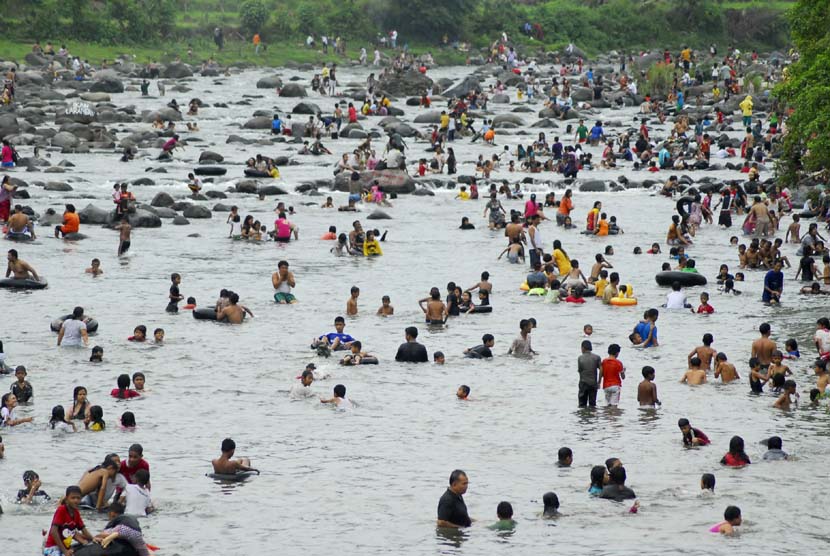REPUBLIKA.CO.ID, By: Julkifli Marbun
A few days ago, I got a call from parents who live in North Sumatra. Doing this annual conversation via phone is one of our customs, or you can call it a tradition, to welcome the month of Ramadan.
The cheerful atmosphere to welcome Ramadan is also felt by the Batak Muslims in several area in Humbang Hasundutan, my district, is still a minority in condition.
But I feel there is something missing this year, the atmosphere in which children or local Muslim perform activities such as 'Marpangir' in rivers or in springs of public bathplace (Pancur) each year before the month of Ramadan.
"Have you been doing 'Marpangir'?" I remember parents were used to ask the question for their children.
What is Marpangir? From some literatures and news, we understand that Marpangir is something commonly done by the Batak Muslims before fasting.
Marpangir is a kind of activity of showering and cleaning your body or bathing.
It was called Marpangir, because in addition to using soap in bath, every one also use other herbs like pangir (lime) to create fragrance.
In North Sumatra, the tradition is carried out by the Batak people in Humbang Hasundutan, North Tapanuli, Tobasa, Samosir, South Tapanuli and other districts such as Labuhan Batu, Padang Lawas, North Padang Lawas and so on.
Meanwhile, in areas with Minangkabau influences, they called it 'Balimo', such as in Sibolga, Barus and other coastal areas.
Given the number of Muslims in our village is not in majority, Marpangir tradition is carried out by only respective families. Not in the form of mass activities in particular places.
But the massive publicity regarding this tradition opened my eyes that in some places, these activities took place in a bulk and has a social value as a part of local culture.
In the area of Labuhan Batu or Rantau Prapat for example, the activity even generate financial benefits to the population, because at this moment, tourist resorts were filled by residents to do Marpangir, or public bath.
In some other places, Marpangir is usually accompanied by a habit to visit and respect the tomb of the family. This mobility, not only create cheerful and happiness to children and member of families but it also create sense of togetherness amongst them. Not to mention it's a sightseeing with adventure pleasures.
However, various articles in the mass media started to highlight the relevance of this activity, especially when there are perceptions to argue that this activity has the ritual aspect based on religious understanding.
As a result, there are some writers emerged to question this activities and named it as part of distorted tradition in Indonesia specially from the point of Islamic teachings, just like other traditions such as Nyadran, Nyorog, Mungguhan, Meugang and Balimo (Balimau).
Regardless of the pros and cons of this issue, Marpangir according to me is just an activity that has characteristic meaning; an activity to mark the joy of the coming of holy month of Ramadan.
Batak Muslims also understand what the meaning of heresy is. They are not going to be easy to confuse things between devotional and social activity.
So, when they say that Marpangir is just part of their ways to interpret the excitement over the arrival of the holy month, it means that it is similar to many ways of Muslim believers to interpret how to cover the genitals while performing prayers. Some were wearing gloves, robes, shirts and pants and so forth.
We can also compare this to other annual activity like 'homecoming' ritual. There is no meaning of worshiping it. It is just about transporting or returning back to the parent homes. While respecting them is a part of religious teaching.
So, as long as the activities not to be interpreted as ritual, there is no point of forbidding it, right?
Wallau A'lam Bisshowab


